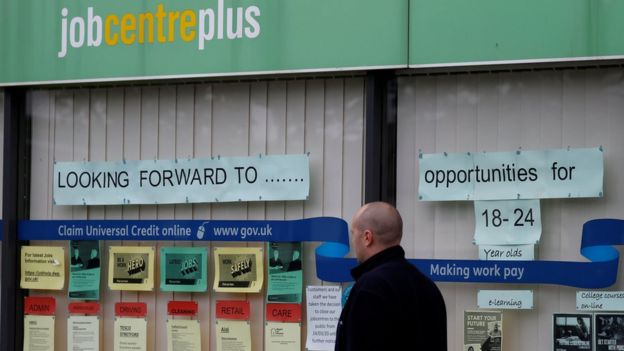The chancellor has vowed to "always balance the books", despite increased spending in the wake of the Covid-19 pandemic.
In a speech to party members, Rishi Sunak said the Conservatives had a "sacred duty" to "leave the public finances strong".
He vowed the use the "overwhelming might of the British state" to help people find new work.
But he said debt and spending needed controlling "over the medium term".
In an online speech during the Conservatives' annual party conference, he said: "I won't stop trying to find ways to support people and businesses."
However, he added the party could not argue there was "no limit on what we can spend", nor that "we can simply borrow our way out of any hole".
- Sunak pledges hope, even if it feels hopeless
- 'Millions of jobs' at risk as furlough nears end
- What jobs are available post-lockdown?
- How much will I get paid when furlough ends?
Mr Sunak cited the furlough scheme and its successor, the jobs support scheme, as examples of government action to support employment during the crisis.
He said though that, although the government would "keep striving to be creative" on employment support, he would also have to be "pragmatic".
He told members that "no chancellor" would be able to save every job or business, adding changes to the economy due to Covid-19 "can't be ignored".
Official figures published in September show government borrowed £35.9bn in the previous month, its highest amount for August since records began in 1993.
Borrowing between April and August totalled £173.7bn, as ministers spent billions on coronavirus-related schemes to support the economy.

Sunak keen to shrug off big-spending reputation

Government borrowing is at stratospheric levels because of the pandemic.
It is not clear precisely what the chancellor means, promising to get it under control in the "medium term".
Nor was there even a whisper of how that could be done.
Treasury sources suggested it's unlikely to happen by the time of the next election, likely to be in 2024.
But while the chancellor's first few months in the job have been characterised by enormous crisis-level spending, that is a characteristic that he is keen to shrug off.

In an interview after his speech, the chancellor said government debt - which passed £2 trillion for the first time in history in August - was vulnerable to increases in borrowing costs.
"Now that we have so much debt, it doesn't take a lot for suddenly 'yikes' - we have to come up with X billion pounds a year to pay for higher interest," he said.
Mr Sunak - who has been touted as a potential future Tory leader - also said he did not want to become PM, and described his "close personal friendship" with Boris Johnson.
Asked if he eventually wants to replace Mr Johnson, he replied: "No. Definitely not seeing what the prime minister has to deal with, this is a job hard enough for me to do."
 REUTERS
REUTERSIn response to his speech, shadow chancellor Anneliese Dodds said Mr Sunak had "nothing to say" to millions of people whose jobs were at risk.
She told reporters more "targeted support" was required for sectors of the economy that have been hardest hit by restrictions during the pandemic.
"Sadly there was nothing from the chancellor today to suggest that he grasped the magnitude of the jobs crisis we're facing," she added.
Dame Carolyn Fairbairn, director-general of business lobby group the CBI, said the best way to balance the books was by "protecting our economy's ability to recover".
Adding that the costs of the pandemic had fallen "deeply and unevenly," she said it was vital to protect at-risk sectors such as aviation, manufacturing, and hospitality.
No comments:
Post a Comment